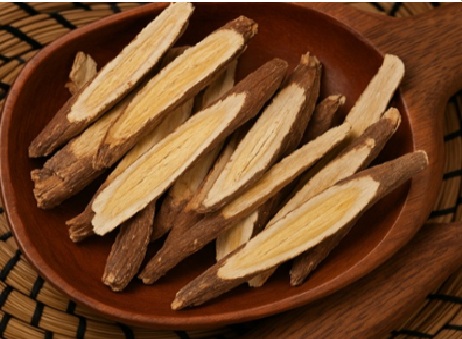Astragalus Root Chinese Herb

Astragalus Root (Huang Qi): A Time-Tested Herb for Energy, Immunity, and Vitality
Introduction
Astragalus root, known as Huang Qi (黄芪) in Traditional Chinese Medicine (TCM), is one of the most widely used herbs in Chinese herbal therapy. Valued for over 2,000 years, astragalus is praised for its ability to boost energy (qi), strengthen the immune system, and support long-term wellness. Today, this adaptogenic herb is gaining global recognition as a natural way to fight fatigue, enhance resistance to illness, and support overall health.
What Is Astragalus Root?
Astragalus root comes from the Astragalus membranaceus plant, a legume native to northern China and Mongolia. In TCM, it is considered a “tonic herb,” meaning it helps to restore, strengthen, and protect the body. The root is typically sliced, dried, and used in teas, decoctions, soups, and herbal formulas.
Health Benefits of Astragalus Root
1. Boosts Qi and Fights Fatigue
Astragalus is primarily used in TCM to strengthen qi, the body’s vital energy. It is especially helpful for those feeling run down, recovering from illness, or experiencing chronic fatigue.
2. Strengthens the Immune System
Research shows that astragalus may stimulate white blood cell production and enhance immune function. It is often used to help prevent colds and respiratory infections, especially during seasonal transitions.
3. Supports Lung and Spleen Function
In Chinese medicine, astragalus is believed to tonify the lungs and spleen, improving digestion, metabolism, and resistance to disease. It is commonly used for those with weak constitutions or poor appetite.
4. Promotes Healing and Reduces Inflammation
Astragalus may support wound healing, tissue repair, and reduce inflammation. It is sometimes used post-surgery or during recovery from illness to speed healing and build strength.
5. Acts as an Adaptogen
As an adaptogen, astragalus helps the body adapt to physical, emotional, and environmental stress. It supports balance in the body and can help improve endurance, stamina, and resilience over time.
How to Use Astragalus Root
In Soups
One of the most traditional and effective ways to consume astragalus is by simmering it in soup. It is usually added to slow-cooked broths along with chicken, pork, mushrooms, and other herbs like goji berries or red dates.
- Add 3–5 slices of dried astragalus root to your soup and simmer for at least 1–2 hours.
- Remove the root before serving; it is not typically eaten.
In Tea or Decoctions
Astragalus can be brewed alone or with other herbs to make a mild, earthy herbal tea.
- Use 1–2 teaspoons of root per cup of water.
- Simmer for 20–30 minutes for full extraction.
In Powder or Capsule Form
For modern convenience, astragalus is also available in powdered or capsule form. Be sure to choose high-quality, reputable sources.
Where to Buy Astragalus Root
You can purchase astragalus root in:
- Chinese herbal stores
- Health food stores
- Online marketplaces like Amazon, iHerb, or specialty TCM retailers
Look for:
- Organically grown astragalus
- Sliced or whole dried root (for soups and teas)
- Standardized extracts (for supplements)
Are There Any Side Effects?
Astragalus is generally considered safe for long-term use. However, people with autoimmune conditions such as lupus or rheumatoid arthritis should consult a healthcare provider before use, as it may stimulate immune activity. Pregnant or breastfeeding women should also seek medical advice before taking it.
Conclusion
Astragalus root is a powerful, time-honored herb that offers wide-ranging health benefits—from boosting energy and immunity to helping the body adapt to stress. Whether used in traditional soups or modern supplements, astragalus is a smart addition to any natural wellness routine.
FAQs
Q: Can I take astragalus every day?
A: Yes, astragalus is safe for daily use in moderate amounts and is often used long-term in TCM.
Q: What does astragalus taste like?
A: It has a mild, slightly sweet, earthy taste. When used in soup, it blends well with other ingredients.
Q: Is astragalus root safe for children?
A: In small, food-based doses (like soups), it is often safe for children. Always consult a pediatric herbalist or doctor first.

